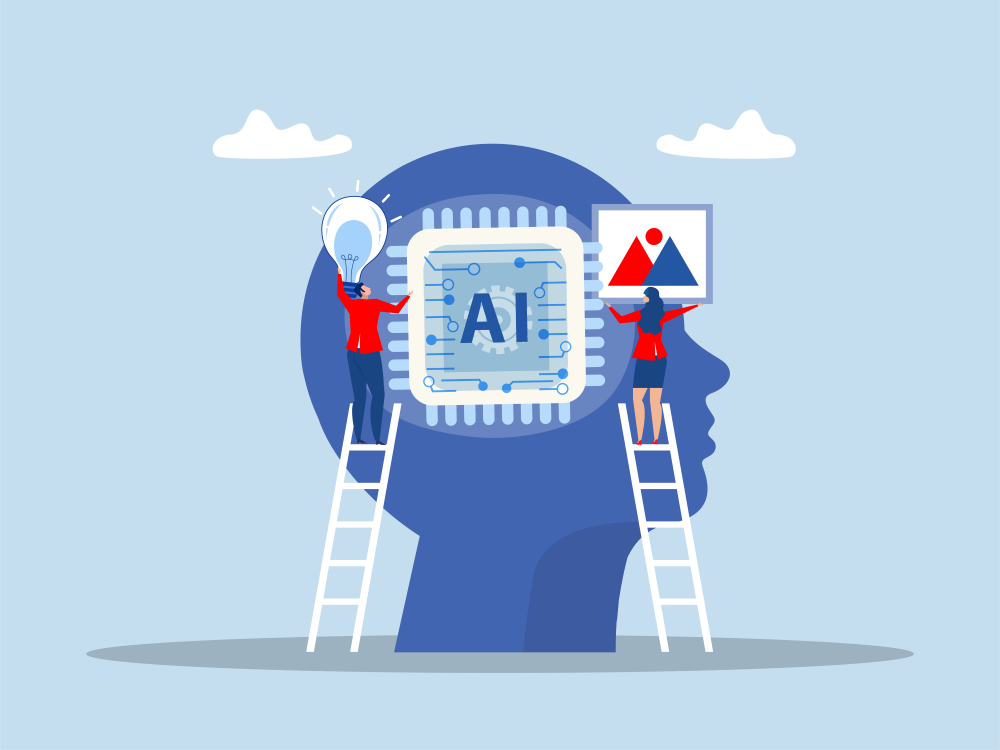Contact Center Intelligence: The Complete Guide to CCI
by Anastasia Micic | Published On November 12, 2024

Modern contact centers are moving through a period of significant transformation, thanks to evolving customer expectations and the rise of new technologies.
Companies searching for ways to streamline operations, boost productivity and enhance customer satisfaction are increasingly turning to Contact Center Intelligence (CCI) solutions to facilitate growth.
In fact, the market for CCI solutions, which leverages advanced technologies from artificial intelligence and machine learning, to data analytics and automation is growing at a compound annual growth rate (CAGR) of 23.4%.
With the right strategy, CCI can empower companies to reduce operational costs, strengthen employee performance, and deliver personalized interactions to customers at scale. In this article, we’ll show you how contact center intelligence is influencing the future of customer service and share our best practices for effective implementation.
What is Contact Center Intelligence?
Contact center intelligence or “CCI” refers to the use of advanced technologies, such as generative and conversational AI, machine learning, data analytics, and automation to enhance the effectiveness and efficiency of contact centers.
Companies investing in contact center or customer service intelligence leverage various tools, such as natural language processing (NLP) algorithms, predictive analytics, and more to analyze customer interactions and performance metrics, automate routine tasks, and extract valuable insights.
On a broad scale, CCI initiatives focus on two things: improving customer experience and optimizing operational efficiency. By allowing companies to analyze vast amounts of data from customer interactions, CCI tools help companies to understand customer expectations and preferences, anticipate their needs, and deliver personalized solutions.
CCI tools can support the development of in-depth customer journey maps, proactive outreach strategies, and unique customer support initiatives. On the operational side, CCI solutions can help companies identify opportunities to boost efficiency and implement strategies to automate repetitive tasks, like call routing or post-call summarization.
They also help supervisors and business leaders access real-time insights into agent performance, allowing them to identify trends, predict potential issues, and make data-driven improvements.
Benefits of Contact Center Intelligence
Investing in customer service intelligence empowers companies to transform data into actionable insights and strategies that can boost efficiency, agent experiences, and customer satisfaction. Some of the biggest benefits of CCI include:
Improved customer satisfaction: AI and contact center automation tools have a direct impact on customer experiences. They can help ensure customers are routed to the right agent based on their needs, collect data from every call to help experts deliver personalized services, and even support 24/7 customer service operations.
Enhanced efficiency: By allowing companies to automate repetitive tasks, like call routing, conversation summarization, and post-call data entry, CCI tools boost efficiency. They can even help to improve problem resolution times and accelerate call handling, by surfacing relevant information to agents during discussions.
Boosted employee experiences: Aside from reducing the number of repetitive tasks they need to complete, CCI tools can enhance employee experiences in other ways. For instance, a virtual assistant can deliver real-time coaching and support to agents, helping them to improve their performance, and increasing job satisfaction.
Stronger business insights: As mentioned above, contact center intelligence helps to transform data from business processes and customer conversations into actionable insights for companies. It can help them understand customer sentiment throughout the buyer journey and uncover opportunities to boost team efficiency and productivity.
Reduced costs: Automated self-service tools and solutions can help minimize the number of agents companies need to invest in to deliver exceptional customer care. CCI solutions also reduce the time and money companies need to spend on data analytics.
Key Components of Contact Center Intelligence
A comprehensive approach to implementing contact center intelligence in the contact center will usually involve experimenting with a wide range of intuitive tools. The most common components of a CCI initiative usually include:
AI-Powered Chatbots
Intelligent chatbots are one of the most significant innovations in contact center technology, helping to boost efficiency and ensure companies can deliver personalized, 24/7 service to customers. Chatbots powered by artificial intelligence can address countless customer queries, answering questions about accounts or orders, scheduling appointments, and more.
Not only does this reduce wait times for customers, allowing them to instantly access support whenever they need it, but it reduces the pressure on contact center teams too. When bots deal with more routine, repetitive tasks, agents have more time to focus on high-value interactions.
Sentiment Analysis
The more data companies have about their customers, their purchasing journeys, and their experiences, the easier it is to increase customer satisfaction. Sentiment analysis tools allow contact centers to track customer emotions in real time during interactions, by analyzing tone, language, and context in a discussion.
With instant insights into a customer’s feelings, agents can adjust their approach, tone, and strategy, accordingly, leading to more empathetic, personalized experiences. Sentiment analysis tools can also help supervisors to monitor and coach agents more effectively, enhancing overall customer satisfaction.
Speech and Text Analytics
Beyond gathering data on sentiment, customer service intelligence tools can help organizations draw more insights from every discussion with text and speech analytics. AI systems can evaluate voice and text-based conversations, detecting patterns in customer behaviors, preferences, and common issues by assessing keywords and phrases.
These insights can help businesses better understand customer pain points and goals, allowing them to optimize their services and refine their communication strategies. The result is both improved efficiency and enhanced customer loyalty.
Intelligent Routing
Intelligent routing systems help businesses to ensure they’re managing calls and contact requests as effectively as possible. AI systems can detect keywords spoken by a customer, understand their intent, and define the best agent to address their specific needs.
With various options for matching customers to agents based on sentiment, agent skill, or historical data, companies can reduce call handling times and transfer rates, increase first contact resolution rates, and improve customer satisfaction.
Role of AI and Machine Learning in Contact Center Intelligence
Although artificial intelligence isn’t the only technology involved in contact center intelligence, it does play a crucial role in any CCI strategy. Various facets of artificial intelligence, such as natural language processing and machine learning enable:
Predictive analytics: AI-powered tools can analyze historical data to forecast future customer needs and strategies for customer service success. They can help companies to identify scheduling requirements for periods of peak demand, take a proactive approach to customer support, and even identify customers at risk of churn.
Constant optimization: Machine learning models built into contact center intelligence systems ensure these tools can constantly evolve and improve. With each customer interaction, these models adapt based on new data, refining their performance over time, and increasing positive outcomes.
Agent support: AI tools in the contact center can deliver real-time assistance to agents, enhancing their ability to respond effectively during interactions. They can offer suggestions and recommended next steps that help agents to solve issues faster and deliver more personalized service experiences to customers.
Plus, artificial intelligence and machine learning systems in CCI solutions ensure companies can get the most value from all the data they collect. These tools can analyze huge volumes of data with exceptional speed, and spot patterns, trends, and opportunities human beings might miss.
Use Cases of Contact Center Intelligence in Different Industries
In virtually every industry, contact center intelligence is revolutionizing how businesses interact with customers, streamline processes, and boost business efficiency. Here’s a quick insight into how companies in different sectors are taking advantage of CCI.
Healthcare
In the healthcare sector, customer service intelligence tools play a valuable role in improving patient engagement and boosting operational efficiency. Tools like ComputerTalk’s iceAlert system can keep patients informed about upcoming appointments, reducing the risk of no-shows.
AI-powered chatbots and virtual assistants can handle appointment scheduling and routine inquiries, reducing the burden on administrative staff. Plus, CCI tools can help businesses to analyze patient data at scale, ensuring they can provide personalized recommendations to each patient.
Financial Services and Credit Unions
In the finance space, contact center intelligence also improves efficiency, by automating routine tasks like data entry and analysis. It can ensure companies deliver consistent round-the-clock support to customers, with chatbots that handle transaction requests and balance inquiries.
Bots can even draw on historical data to deliver personalized product and investment suggestions to customers. Plus, AI-driven systems in finance can be used to minimize the risk of fraud. They can analyze transaction patterns and flag suspicious activities, helping companies to stay on top of security risks.
Retail
In retail, contact center intelligence helps companies to boost sales and increase customer loyalty. AI solutions can deliver personalized recommendations to customers based on purchasing history data and preferences. Chatbots can even reduce cart abandonment rates in ecommerce, by answering routine questions about delivery speeds and return policies.
CCI solutions can also improve order tracking and post-purchase support by automating status updates and dealing with common requests like returns or exchanges. This leads to higher customer satisfaction and loyalty, as customers receive faster and more accurate assistance.
Manufacturing
In manufacturing, CCI can automate troubleshooting processes for both customers and agents. Companies can use AI to analyze issues with machinery performance, and identify potential solutions, reducing downtime and minimizing customer frustrations.
Virtual assistants and chatbots can even help customers troubleshoot and fix common problems without human intervention, speeding up problem resolution rates. Plus, real-time analytics and insights help manufacturers identify ways to improve product quality over time.
Best Practices for Implementing Contact Center Intelligence
Implementing contact center intelligence into your day-to-day customer service strategy can lead to excellent results, boosting operational efficiency and customer satisfaction rates. However, there are a few crucial best practices you’ll need to keep in mind as you begin your journey.
Prioritize Integration with Existing Systems
Customer service intelligence and contact center automation solutions work best when they can seamlessly integrate with the systems you already use. The chatbots, routing systems, and data analysis tools you implement, for instance, should integrate not just with your contact center platform, but your customer relationship management (CRM) technology and databases.
Depending on your goals, you may want to ensure your solutions work well with ticketing platforms, as well as workforce management solutions, so they can help you improve resource allocation. Look for a solution that’s flexible and works with all your existing data and technology.
Remember Data Privacy and Security
Since CCI solutions focus on transforming data into actionable insights, it’s important to ensure the data you’re feeding into these systems is protected. Create policies and guidelines for how data will be collected, stored, and used to train artificial intelligence models.
Make sure you’re aware of the compliance standards you need to adhere to when using tools to automate certain tasks too. For instance, if your bots and virtual assistants will be processing transactions for customers, they’ll need to be compliant with PCI standards.
Invest in Continuous Optimization
Contact centers are dynamic environments, affected by constantly changing consumer behaviors, compliance requirements, and technologies. To ensure your intelligent solutions continue to deliver the right results, you’ll need to ensure you’re constantly testing their performance, and fine-tuning systems to enhance accuracy.
Regularly feeding new data into an AI system will help to ensure it stays aligned with current trends. Additionally, regular testing for bias or inaccuracies will reduce the risk of problems with your technology that can harm customer experiences.
Preserve Human and AI Collaboration
Finally, one of the key steps to effective CCI implementation is ensuring you maintain the right balance between human beings and technology. While AI can automate and simplify various routine tasks, such as routing calls and answering common questions, it shouldn’t replace human agents.
Instead, AI solutions should augment your employees, giving them access to training, guidance, and support that makes them more effective in their roles. Make sure you don’t underestimate the importance of keeping human agents in the loop within the contact center.
Creating an Intelligent Contact Center
As consumer expectations evolve, and businesses face increased pressure to boost efficiency, enhance decision-making processes, and strengthen productivity, the demand for contact center intelligence is growing.
CCI gives contact centers access to valuable tools they can use to automate routine tasks, enhance customer interactions, and make better decisions for growth. With the right strategy and approach to implementation, customer service intelligence tools can transform your organization.
Contact a ComputerTalk representative to learn how our solutions for contact center intelligence, from chatbots, to intelligent routing and automation systems, can help you stay one step ahead of the competition.
More from our blog
 Elevate your business with effective customer support strategies. Discover key approaches to optimize service quality, enhance customer satisfaction, and achieve long-term success.
Elevate your business with effective customer support strategies. Discover key approaches to optimize service quality, enhance customer satisfaction, and achieve long-term success.
 Revolutionizing the world of customer communication and support, Teams-certified contact centers are a game-changer in today's dynamic digital landscape, delivering seamless and engaging interactions that redefine the customer experience.
Revolutionizing the world of customer communication and support, Teams-certified contact centers are a game-changer in today's dynamic digital landscape, delivering seamless and engaging interactions that redefine the customer experience.
 Microsoft Teams is one of today’s most popular tools for corporate communications.
Microsoft Teams is one of today’s most popular tools for corporate communications.

